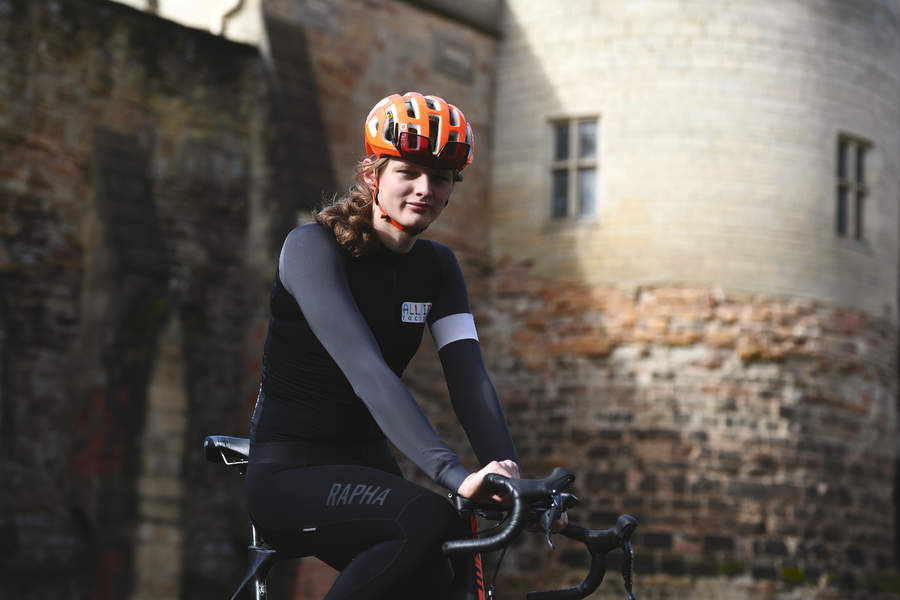
Emily Bridges - Britain’s most high profile transgender cyclist - has slammed British Cycling’s decision to ban transgender women from the female category of its competitions labelling the policy “a violent act”.
Under a new participation policy issued by the governing body today, transgender women will only be able to compete in competitive events in an ‘open' category alongside men.
In a statement released on social media, Bridges levelled a series of accusations at the national governing body.
“This is a violent act,” Bridges wrote. She went on to say the ban was coming amid the British government "expressing admiration" for hard right US Presidential candidate Ron DeSantis, who has made a name for himself with anti-trans legislation in Florida, where he is the state governor.
“British Cycling are supporting this, they are furthering a genocide against us. Bans from sport is how it starts, look at what is going on in America. It starts with sports bans, then youth and general healthcare and then bans from public life through bathroom bans. Just look at the situation, and who is on your side. When literal Nazis, conspiracy theorists and those who want our eradication are on your side, surely that should give you pause?”
Bridges said that British Cycling has “no authority” to control the conversation around the issue any longer stating that she is “done” with “this whole conversation being on their terms”.
Bridges wrote: “British Cycling is a failed organisation, the racing scene is dying under your watch and all you do is take money from petrochemical companies and engage in culture wars. You don’t care about making sport more diverse, you want to make yourself look better and you’re even failing at that. Cycling is still one of the whitest, straightest sports out there, and you couldn’t care less.”
When BC announced the decision to partner with Shell, the organisation said the agreement will see a shared commitment to "supporting Great Britain’s cyclists and para-cyclists through the sharing of world-class innovation and expertise; accelerating British Cycling’s path to net zero; and helping more – and wider groups of – people to ride, including ways to make cycling more accessible for disabled people".
Bridges further explained that she believes a “nuanced policy discussion” is needed and that further research should be carried out, but she suggested that “hasn’t happened”.
“Research isn’t being viewed critically, or any discussion about the relevance of the data to specific sports. Any discussion is inherently political and driven by bad faith actors… I’ve given my body up to science for the last two years, and this data will be out soon. There is actual, relevant data coming soon, and discussions need to be had,” she said.
The governing body's previous testosterone based policy was suspended pending a full review last year. This was, in part, sparked by fears Bridges would have an advantage competing at the omnium National Championship.
When approached by Cycling Weekly, British Cycling declined to comment on this story.







